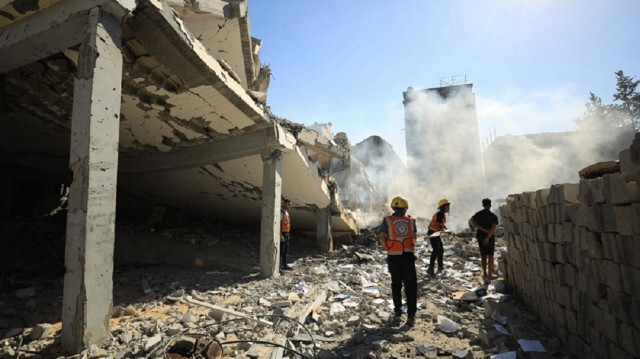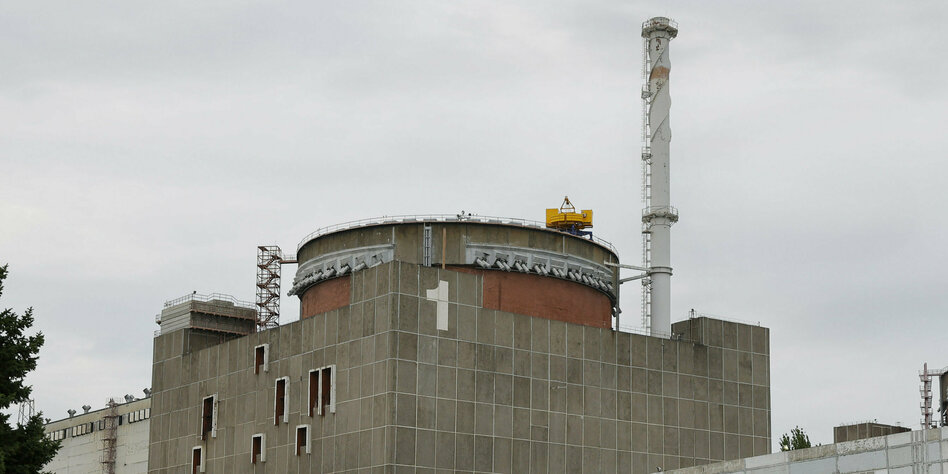Tel Aviv on Edge: Drone Strike Rocks City
The early morning drone strike in Tel Aviv by Yemen's Houthi rebels has raised significant concerns over security and the ongoing conflict dynamics. At least one person has been killed and several injured.
Published July 20, 2024 - 00:07am

Image recovered from irishtimes.com
A large explosion rumbled through the streets of central Tel Aviv early Friday morning after an apparent drone strike caused shards of shrapnel to rain down, injuring at least 10 people and leaving one dead, authorities said.
Yemen's Houthi rebels claimed responsibility for the attack. The Houthis have launched drones and missiles toward Israel throughout the Israel-Hamas war, in solidarity with the Palestinian people and against Israel. But until Friday, all were intercepted by either Israel or Western allies with forces stationed in the region.
Local police in Tel Aviv said that the blast sounded at about 3.10am on Friday, reverberating to nearby cities and physically injuring at least 10 people. Tel Aviv district commander Peretz Amar said officers could not locate the point of contact, suggesting the explosion occurred in the air.
The aerial strike rumbled through the streets causing shards of shrapnel to rain down and spreading shards of glass over a large radius. The Houthis' spokesperson, Yahya Sare'e, said in a statement published on the social media platform X that the strike was made in retaliation for the war and had hit one of many of the group's targets.
Israel's military said they were reviewing the explosion and increasing air patrols after the incident which Tel Aviv mayor Ron Huldai on X, formerly Twitter, called a drone strike. The Houthis claimed that their newest drones can bypass Israel's aerial defence systems. However, an Israeli military official on Friday stated that the explosive-laden drone had been identified on Thursday and attributed the hit to human error.
Like Hamas, Hezbollah and the Houthis are backed by Iran. Israel for the most part also has avoided a direct confrontation with Iran throughout the war. Iran launched hundreds of drones and missiles at Israel during a single incident in April in response to Israel's alleged assassination of a pair of Iranian generals in Syria at the time.
Two international courts have accused Israel of war crimes and genocide - charges Israel denies. Most of Gaza's 2.3 million people are crammed into squalid tent camps in central and southern Gaza. Israeli restrictions, fighting and the breakdown of law and order have limited humanitarian aid efforts, causing widespread hunger and sparking fears of famine.
Tel Aviv has been put on the highest alert, following the strike, with Tel Aviv Mayor Ron Huldai addressing the threat in the early morning hours. The country has not made attacks on the Houthis, allowing its allies instead to take the lead as it focuses its efforts on the war in Gaza and ongoing fighting with Lebanon's Hezbollah militant group.
The IDF Spokesman Daniel Hagari said, Iran supports, funds, and arms its proxies in the region, in Gaza, Judea and Samaria, Lebanon, Syria, and Yemen, as seen last night. Hagari added that the military is trying to identify why the drone was not detected by air defense forces and no air raid alarm was issued.
Such fears run counter to renewed hopes that Israel signaling its operation underway in Rafah nearing its finish could foster an environment more conducive to negotiations. The country remains divided over striking a deal, with some wanting the government to take the necessary steps to free the hostages and others, including far-right national security minister Itamar Ben-Gvir disavowing the idea. On Thursday, Ben-Gvir visited Jerusalem's most sensitive holy site to pray for the return of Israeli hostages, he said, without a reckless deal, without surrendering.
Yossi Nevi, a retired evacuee from Kiryat Shmona living in a nearby hotel in Tel Aviv said the blast shook him awake to watch the aftermath from his balcony and decreased his faith in the army's management of the war. He said many expected such a strike to come from the north, which the military said had not been the case. Hearing it was a human error, Nevi said, made him lose all trust in the army; not that I had much after the past nine months.
Hearing it was a human error, Nevi said, made him lose all trust in the army, not that I had much after the past nine months. Eldad Namdar, who owns a camera store next to the intersection where the drone exploded, said some of his items had fallen but there was no major damage. While he hopes the war ends soon, he also wants it to be concluded in a way that secures his future.
The Houthi strike hit hours after Israel's military confirmed one of its airstrikes had killed a Hezbollah commander and other militants in southern Lebanon. Israel has so far not made attacks on the Houthis, allowing its allies instead to take the lead as it focuses its efforts on the war in Gaza and ongoing fighting with Lebanon's Hezbollah militant group.
The Houthis have routinely claimed responsibility for hitting targets in the Red Sea and Gulf of Aden. They maintain that their attacks target ships linked to Israel, the United States or the United Kingdom however many have little or no connection to the war.
Friday's drone strike on Tel Aviv could resurface fears about the war in Gaza between Israel and Hamas expanding into a regionwide conflagration as international mediators continue to push for a cease-fire. The three-phase deal under discussion would halt fighting and free about 120 hostages held by the militant group in Gaza.







